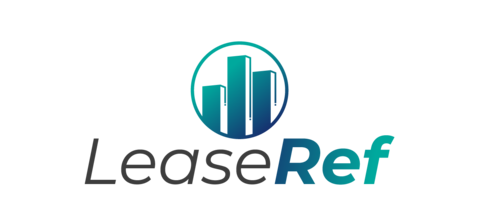As a commercial tenant, finding the right property is one of the most significant investments of your business capital. You can’t just choose a unit and hope for the best-you need a space that aligns with your operational needs and long-term financial strategy.
Depending on your circumstances, this could mean securing a flexible short-term lease or committing to a single-tenant triple net lease (SNTL) for greater control over the property and predictable expenses. Whether you’re looking for a small storefront or a large industrial facility, the right lease structure can make all the difference in your business’s success.
This can feel overwhelming. Many entrepreneurs find that the best way to navigate this challenge is to find resources that can help them achieve greater clarity in the simplest way possible. Such tools help to cut through the confusion and reduce a certain amount of stress along the way.
One of the more popular resources in this regard is commercial lease abstraction. But what exactly is this? Let’s take a closer look at the concept alongside some important considerations relating to it.
What is Lease Abstraction?
Put simply, lease abstraction is the process of reducing the bulk of a commercial lease into a more condensed summary.
Commercial leases are necessarily quite complex documents, often more so than residential properties. This is because there tend to be a lot of quite nuanced rights and responsibilities for commercial tenants alongside the fairly standard aspects like rent costs and notice periods.
When you’re reviewing properties and terms, you’re often expected to be able to translate multiple pages of this legalese before you can determine how it has the potential to affect your business. If you then need to go back and renegotiate terms, you’re then faced with having to review the contract another time. Indeed, you may find you’re more comfortable getting a lawyer to review the lease, which adds expense to the process.
A lease abstract cuts through this. There is certainly still a full legal document available for review and any legal action relating to your tenancy will be based on the full contract, rather than the abstract. However, the abstract pulls out the key details that the majority of commercial tenants will find the most relevant data to make a decision and understand what they’re about to sign. The result is a more swift process, immediate clarity on the most important terms, and accessible data to incorporate into your business plan moving forward.
What is Usually Included in a Lease Abstract?
Lease abstraction is a relatively common approach to commercial rentals. As such, there is a standard range of information that is usually included in the abstract. It is in the best interests of both the tenant and the property owner to make sure the abstract contains all the most salient and practical data. So, it’s not usually the case that anything important will be missed out.
In most cases, a commercial lease abstract will include:
- Details of landlord and tenant
This should include the names, addresses, and contact details of both the landlord and tenant. If there is a tenants association in a multi-unit complex or a property management company involved, these details are also usually included on the abstract.
- Dimensions of the property
The full square footage of the property should be outlined in the abstract. On top of this, there should also be details of common areas your business has access to when you’re renting a unit in a shared lot. This will also include details of any parking or delivery areas.
- Rent costs
The abstract should at minimum outline the basic monthly, quarterly, or yearly rent amounts. There should also be data about the security deposit and any common area maintenance (CAM) or security charges. A good lease abstract will go a little further than this, though. Some landlords will also include a summary of any relevant rental cap terms and property tax information.
- Important dates
The important dates relating to the tenancy will usually be included on a lease abstract. This will include the date of signing, the dates deposits and first rent must be paid, along with the date of your occupancy.
- Lease length
In most cases, a landlord will be keen to keep a commercial tenant for as long as possible. However, most commercial leases won’t be open ended. There will usually be fixed minimum and maximum lengths included on the lease abstract. In a more comprehensive abstraction you might also find details about the renewal process and whether you have first right of refusal should the owner wish to sell the property.
- Termination rights
The business environment can be volatile for both tenants and landowners. As such, you can expect your abstract to provide clarity on grounds for termination for both parties. This should include the relevant notice periods and methods of informing each party.
- Usage terms
Though you’ll be paying rent to occupy the property, this doesn’t mean you have carte blanche to do anything you want there. Many commercial property owners have strict limits on the type of businesses that can operate in their premises. They may also have agreements with their other tenants for minimum distances from businesses offering similar services. As such, there should be clear usage terms summarized on the lease abstract.
- Improvement allowance information
Commercial landowners understand that each business has unique needs. As such, there will usually need to be improvements or additions to the property to make it fit for your purposes. This could include installing fixtures, signage and branding, and safety elements. Most commercial landlords will provide an improvement allowance either in the form of reimbursement of costs or deduction from the first rent payment. The details of this allowance will be outlined on a good lease abstract.
How is Lease Abstraction Performed?
Before our current digital age, the lease abstraction process was performed by real estate professionals on an individual basis. However, today, lease abstraction is most commonly executed utilizing artificial intelligence (AI) driven software. These platforms analyze the full tenancy contract, picking out the key terms and producing a relevant summary. This software isn’t just influenced by programmers, it has learned from data from the wider real estate industry, legal terminology, and previous algorithms to produce the most accurate and relevant lease abstractions. The results are then reviewed by human real estate professionals.
This automation not only makes the process quicker and more convenient for everyone involved. It also reduces the potential for human error to result in you getting incorrect data or missing vital parts of the lease contract.
What are the Benefits of Lease Abstraction?
It’s understandable that you might be a little hesitant around the concept of lease abstraction. After all, you don’t want your business to suffer because you only read an abstraction and missed hidden clauses. In most cases, leaving important aspects out of the abstract doesn’t benefit the landowner, either. Their intention is not to trap you into a tenancy, they want to build a positive and long-term relationship with you — particularly if they have other properties in neighboring areas you might expand to.
Alongside this, it can also be reassuring to review some of the other key advantages for you. Some of the benefits of lease abstraction for commercial tenants include:
- Clear terms
Perhaps the most important benefit you as a commercial tenant gain from lease abstraction is instant clarity. The abstract isn’t just designed to squash a lengthy contract down into a smaller format. It’s also about making the most important legal and practical aspects of the contract digestible. An abstract is as much a translation as it is a summary. It may be the case that, for your own piece of mind, you still have your attorney review the entire contract on your behalf. But for your immediate plans and decision making, an abstract is usually user-friendly for even inexperienced entrepreneurs.
- Greater efficiency
Your time is one of your most important assets as a business owner. A lease abstraction reduces the time you need to take reading, reviewing, and querying the full lease contract. It can also reduce the need to have your attorney read the lease and consult with you to explain different elements of it. This can be more efficient when you’re operating a single premises. However, if you’re opening and operating in multiple locations, abstracts can have a serious impact on efficiency both at the time of signing your leases and if you or your staff needs to check the terms later on.
- Accessible data for your business plan
The lease, no matter what its size is, can provide your business with data that can influence your business plan moving forward. This includes the costs you’ll be spending on rent in the long term, the periods of time you’re in your lease before you can move on, and the potential for making improvements to the premises that can support your growth. Lease abstraction means you’re not having to sift through a lot of legal jargon to get this data. It’s already there for you to consider and utilize at your convenience.
Wrapping Up
Lease abstraction is the process of reducing a complex tenancy contract into a summary of its key terms. This will usually include aspects such as rent prices, property use limitations, and lease length. This isn’t just a way to make the real estate law terminology easier to read. It also holds benefits like practical business data and a more efficient rental process. With more accurate abstracts now being produced using machine learning and AI platforms, it’s a tool you can generally trust and utilize to your full advantage as an entrepreneur.



